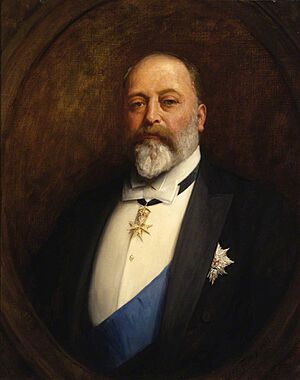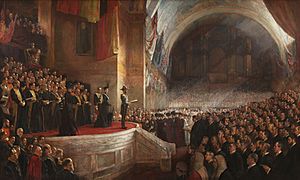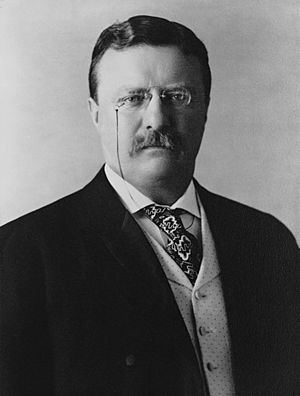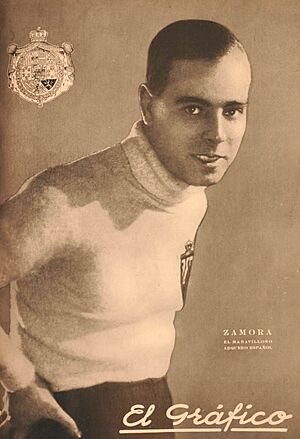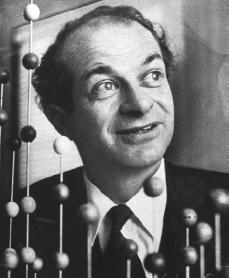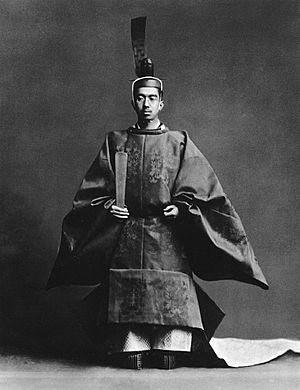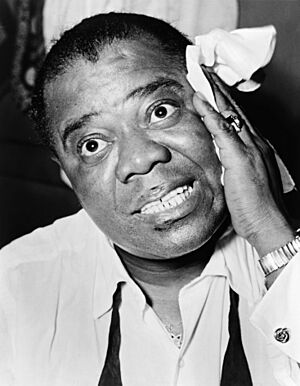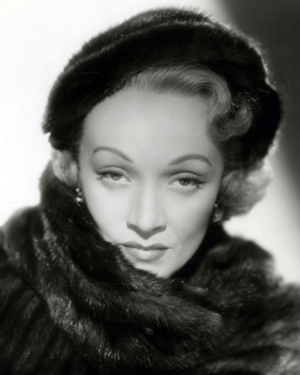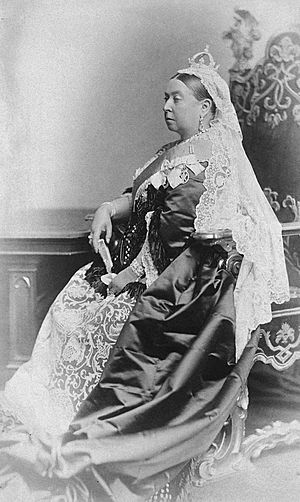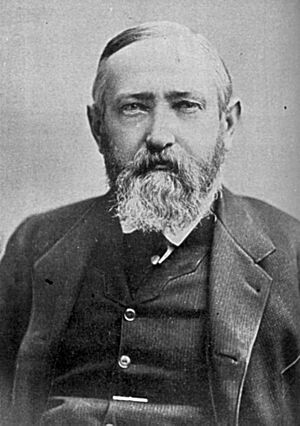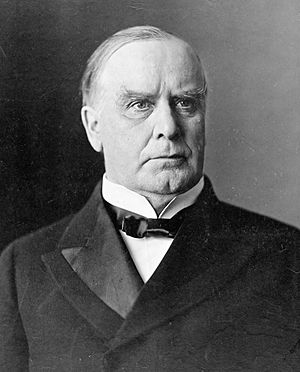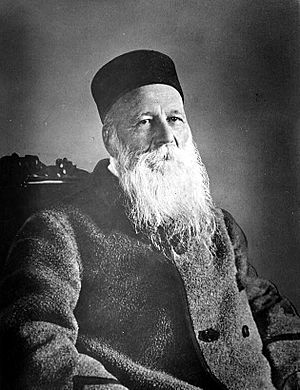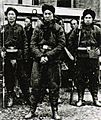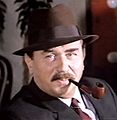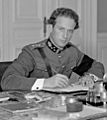1901 facts for kids
| Millennium: | 2nd millennium |
|---|---|
| Centuries: | 19th century – 20th century – 21st century |
| Decades: | 1870s 1880s 1890s – 1900s – 1910s 1920s 1930s |
| Years: | 1898 1899 1900 – 1901 – 1902 1903 1904 |
1901 was the first year of the 20th century. It was a year filled with big changes and new beginnings around the world.
Contents
Big Moments of 1901
- On January 1, several areas in Australia joined together to form the new country called the Commonwealth of Australia. John Hope, 1st Marquess of Linlithgow became its first Governor-General, and Edmund Barton became the first Prime Minister of Australia. Their first parliament met in Melbourne on May 9.
- In the United Kingdom, Queen Victoria died on January 22 at the age of 81. She had ruled for over 63 years, which was longer than any British monarch before her. Her death marked the end of an important time known as the Victorian era. Her son, Edward VII, became the new King.
- In China, a conflict called the Boxer Rebellion ended. China had to agree to Peace terms set by powerful Western countries, Japan, and Russia.
- The 25th President of the United States, William McKinley, was shot by Leon Czolgosz in Buffalo, New York. He died 8 days later. Theodore Roosevelt then became the new president.
- The very first Nobel Prizes were given out in Stockholm on December 10. This was on the fifth anniversary of Alfred Nobel's death. Wilhelm Conrad Roentgen won the prize for Physics because he discovered X-rays. The Nobel Peace Prize was shared by Frederic Passy and Jean-Henri Dunant, who founded the International Red Cross.
What Happened in 1901
January to June
- January 1 – The 20th century officially began.
- January 1 – Australia became a new country. Six different areas joined to form the Commonwealth of Australia.
- January 1 – Nigeria became a British Protectorate, meaning it was protected and controlled by Britain.
- January 10 – The Boxer Rebellion in China ended, and China accepted peace terms from other powerful nations.
- January 22 – Queen Victoria of the United Kingdom died at age 81. Her son, Edward VII, became the new King.
- February 6 – The first public telephones were put in railway stations in Paris, France.
- February 14 – King Edward VII opened his first parliament meeting.
- March 4 – William McKinley started his second term as President of the United States. Theodore Roosevelt became his Vice President of the United States.
- March 17 – A showing of 71 paintings by Vincent van Gogh in Paris caused a lot of excitement.
- April 25 – New York State was the first to require automobile license plates.
- April 29 – Hirohito was born. He would later become the longest-reigning Japanese Emperor.
- May 3 – A huge fire destroyed much of Jacksonville, Florida, leaving 10,000 people without homes.
- May 9 – Australia held its first Parliament meeting in Melbourne.
- June 12 – Cuba became a US protectorate.
July to December
- July 4 – The Covered Bridge at Hartland, New Brunswick, Canada, opened. At 390 meters long, it was the longest covered bridge in the world.
- August 30 – Hubert Cecil Booth received a patent for an electric vacuum cleaner.
- September 6 – US President William McKinley was shot by Leon Czolgosz in Buffalo, New York.
- September 7 – The Boxer Rebellion officially ended in China.
- September 14 – William McKinley died from his injuries. Theodore Roosevelt became the 26th President of the United States.
- October 24 – Annie Taylor, a school teacher from Michigan, went down Niagara Falls in a barrel and survived!
- October 29 – Leon Czolgosz was executed in New York State for shooting President McKinley.
- November 25 – Auguste Deter was examined by Alois Alzheimer in Germany. She became the first person known to have what was later called Alzheimer's disease.
- December 10 – The first Nobel Prizes were awarded in Stockholm.
- December 12 – Guglielmo Marconi received the first ever Trans-Atlantic radio signal. It was sent from England to Newfoundland, Canada.
Other Important Events
- The Second Boer War continued (it lasted from 1899 to 1902).
- Norway allowed women to vote in local elections.
- Pablo Picasso started creating his famous Blue Period paintings.
- The popular book Kim (book) by Rudyard Kipling was published.
Famous People Born in 1901
- January 21 – Ricardo Zamora, a famous Spanish footballer (d. 1979)
- February 1 – Clark Gable, a well-known American actor (d. 1960)
- February 28 – Linus Pauling, an American chemist who won two Nobel Prizes (d. 1994)
- April 29 – Hirohito, who became the Emperor of Japan (d. 1989)
- August 4 – Louis Armstrong, a legendary American jazz musician (d. 1971)
- September 28 – Ed Sullivan, a famous American television host (d. 1974)
- September 29 – Enrico Fermi, an important Italian physicist (d. 1954)
- December 5 – Walt Disney, the American animator and movie producer who created Disney (d. 1966)
- December 5 – Werner Heisenberg, a German physicist who won a Nobel Prize (d. 1976)
- December 27 – Marlene Dietrich, a famous German actress and singer (d. 1992)
Notable People Who Died in 1901
- January 22 – Queen Victoria, the long-reigning Queen of the United Kingdom (b. 1819)
- January 27 – Giuseppe Verdi, a famous Italian composer (b. 1813)
- March 13 – Benjamin Harrison, the 23rd President of the United States (b. 1833)
- September 9 – Henri de Toulouse-Lautrec, a well-known French painter (b. 1864)
- September 14 – William McKinley, the 25th President of the United States, who was assassinated (b. 1843)
- October 29 – Leon Czolgosz, the person who shot President McKinley (b. 1873)
The First Nobel Prizes
The first Nobel Prizes were awarded in 1901 to people who had made great contributions to humanity:
- Physics – Wilhelm Conrad Roentgen for discovering X-rays.
- Chemistry – Jacobus Henricus van 't Hoff for his work on chemical reactions.
- Physiology or Medicine – Emil Adolf von Behring for his work on fighting diseases.
- Literature – Sully Prudhomme, a French poet.
- Peace – Shared by Jean-Henri Dunant and Frederic Passy for their efforts in promoting peace and helping people.
Images for kids
-
The Boxer Rebellion in China ended with the signing of the Peking Protocol.
-
Emperor Hirohito
See also
 In Spanish: 1901 para niños
In Spanish: 1901 para niños
Black History Month on Kiddle
African-American Women you should know
 | Anna J. Cooper |
 | Mary McLeod Bethune |
 | Lillie Mae Bradford |

All content from Kiddle encyclopedia articles (including the article images and facts) can be freely used under Attribution-ShareAlike license, unless stated otherwise. Cite this article:
1901 Facts for Kids. Kiddle Encyclopedia.

